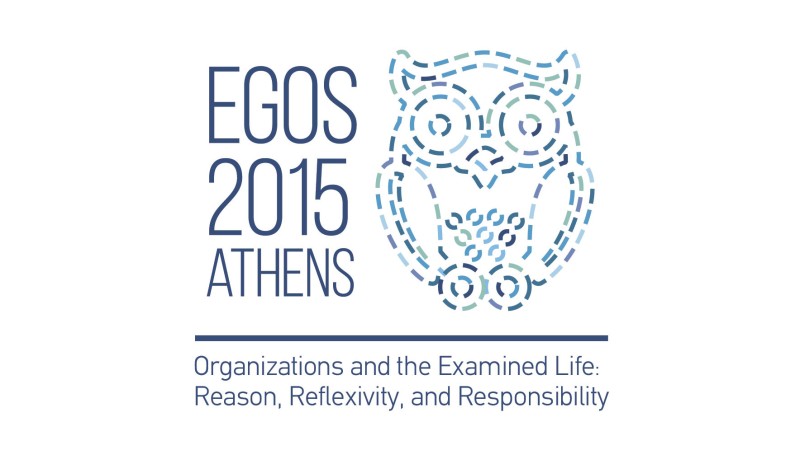Sub-theme 62: Take a Walk on the Wild Side: Social Ontologies and Post-Legitimacy Theorizing about Social Structure
Call for Papers
Legitimacy and isomorphism figure prominently in theorising about the dynamics of different kinds of organizational
phenomena, but studies of categories and organizations remind us that categories exist not only for legitimate organizational
forms, practices and strategies, but also for organizational phenomena that are controversial or even illicit. Toward a systematic
explanation of the dynamics of the full range of organizational phenomena, this track explores the question, what enables
different kinds of organizational phenomena to be seen as real? In addition to looking beyond legitimacy, this question requires
understanding how categories emerge and become elements of widely shared social ontologies, or "systems of categories, meanings
and identities within which actors and actors are situated" (Ruef, 1999).
Thus, we invite research that takes
a walk on the wild side, so to speak, by looking beyond isomorphism to explore the emergence and persistence of patterns widely
recognised as social realities and, therefore, elements of social ontologies.
Proceeding from the observation
that meaning and social structure co-evolve (Mohr, 1998), our hope is to convene a creative yet productive conversation about
the role that reflection and meaning-making play in emergence of new social structures. In addition to conceptual work focused
on developing novel theoretical accounts, we welcome qualitative and quantitative work, and particularly work taking relational
approaches to observing and explaining the meaning of labels for referring to social structures (i.e., categories). Similarly,
we encourage submissions that explore the linguistic foundations of shared cognitive frameworks that underlie the forces exerted
by widely recognised social structures. Our goal is to start a new conversation and be theoretically inclusive, and we invite
work on meaning and categories being done in different theoretical schools, including for instance organizational ecology
and the logics perspective of institution theory.
These broad themes translate into a series of questions of
keen interest:
- Collective pattern recognition. What sorts of connections facilitate elaboration of meaning and collective recognition of new categories?
- Categorization and categories. How do modes and occasions of categorization ease generally negative audience reactions to not-yet widely recognised category schemes (Durand & Paolella, 2013; Glynn & Navis, 2013; Kennedy & Fiss, 2013)?
- Relational foundations. How do we conceptualise and model connections that support collective recognition of patterns (Emirbayer, 1997; Pachucki & Breiger, 2010)?
- Critics, movements and professions. Why and how do professions, the media or critics support the emergence of new entities and phenomena (Cornelissen, 2012; Lounsbury & Rao, 2004)?
- Institutional logics. How is the recognition of new realities embedded in larger shared meaning structures such as institutional logics (Thornton et al., 2012)? How do such structures constrain or enable recognition?
- Network dynamics. How is recognition of new realities related to the dynamics of networks based on, for example, (a) relations among different kinds of organizations (Powell et al., 2005) or (b) connections made in public discourse (Kennedy, 2008)?
- Status and power. How does the status of particular actors create opportunities to dictate recognition of new ideas to particular audiences? What is the influence of activists, clients, suppliers, legislators, or lobbyists (Rao et al., 2005)?
- History and path dependence. How do the categories of existing ontologies both constrain and enable collective recognition of particular kinds of categories (Garud & Karnøe, 2001)?
- Ideology. How do conflicting ideologies or cultural differences affect whether and how categories travel across product markets or geographical spaces? How are categories translated across communities without losing their meaning (Bowker & Star, 1999)?
References
- Bowker, G.C., & Star, S.L. (1999): Sorting Things Out: Classification and Its Consequences. Cambridge, MA: MIT Press.
- Cornelissen, J.P. (2012): "Sensemaking under pressure: The influence of professional roles and social accountability on the creation of sense." Organization Science, 23 (1), pp. 118–137.
- Durand, R., & Paolella, L. (2013): "Category stretching: Reorienting research on categories in strategy, entrepreneurship, and organization theory." Journal of Management Studies, 50 (6), 1100–1123.
- Emirbayer, M. (1997): "Manifesto for a relational sociology." American Journal of Sociology, 103 (2), 281–317.
- Garud, R., & Karnøe, P. (eds.) (2001): Path Dependence and Creation. Mahwah, NJ: Lawrence Erlbaum Associates.
- Glynn, M.A., & Navis, C. (2013): "Categories, identities, and cultural classification: Moving beyond a model of categorical constraint." Journal of Management Studies, 50 (6), 1124–1137.
- Kennedy, M.T. (2008): Getting Counted: Markets, Media, and Reality." American Sociological Review, 73 (2), 270–295.
- Kennedy, M.T., & Fiss, P.C. (2013): "An ontological turn in categories research: From standards of legitimacy to evidence of actuality." Journal of Management Studies, 50 (6), 1138–1154.
- Lounsbury, M., & Rao, H. (2004): "Sources of durability and change in market classifications: A study of the reconstitution of product categories in the American mutual fund industry, 1944–1985." Social Forces, 82 (3), 969–999.
- Pachucki, M.A., & Breiger, R.L. (2010): "Cultural holes: Beyond relationality in social networks and culture." Annual Review of Psychology, 36, 205–224.
- Powell, W.W., White, D.R., Koput, K.W., & Owen-Smith, J. (2005): "Network dynamics and field evolution: The growth of interorganizational collaboration in the life sciences." American Journal of Sociology, 110 (4), 1132–1205.
- Rao, H., Monin, P., & Durand, R. (2005): "Border crossing: Bricolage and the erosion of categorical boundaries in French gastronomy." American Sociological Review, 70 (6), 968–991.
- Ruef, M. (1999): "Social ontology and the dynamics of organizational forms: Creating market actors in the healthcare field, 1966–1994." Social Forces, 77 (4), pp. 1403–1432.
- Thornton, P., Ocasio, W., & Lounsbury, M. (2012): The Institutional Logics Perspective: A New Approach to Culture, Structure and Process. Oxford, UK: Oxford University Press.


